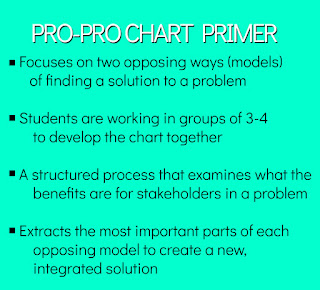The Right Way?
Aaron Neal is a mathematics and physics teacher at Burlington Central High School. After attending some professional development around “Finding Your Why” he was left with some questions about the ingredients that go into great teaching. This is his first guest post for The Shift.

Teaching is not a solved problem. I love that about it. Every conversation with a student, parent, colleague or administrator is an opportunity to get closer to the solution. I will never stop hunting for the right way to teach. It is out there, I just need to keep hunting. My first thought I ever had about teaching was that a good explanation was all I needed. Now I know that sometimes the best explanation is no explanation at all. I have grown and changed, had more thoughts and ideas about education than I can remember; however, I am still on the hunt…
Just because I have never even caught sight of my prey doesn’t mean that I don’t know the scent of it.
I don’t know what the right way to teach is; however, I think that these aspects of how to teach the right way will be the scent that leads me to it.

My time on the hunt has led me to change my practice time and time again. Here are a couple of examples of my personal journey.
Giving Time to “Breathe” in the Learning
There was a time when I had a schedule with units of learning, quadratics for 2 weeks, linear relations for 2 weeks, a textbook section a day until I ran out and then 2 days for review and a test. Why does the test need to come 2 days after the end of the unit? The students have not lived in the topic for long enough, they will cram, succeed and forget. They need to breathe it in make it a part of them, understand it, apply it, see how it connects to the next thing, refine, practice, build something with it. This takes time. I don’t know how to make it work with all the other things that make up the right way; however, when I catch sight of my prey it will include time for the kids to breathe in their learning.
Time Management
Many of us have integrated large scale projects, labs, essays, cross-curricular builds, presentations and more into our practice. I have been reflecting on this recently as my students embark on the wild adventure that I have built with them. My recent projects have produced incredible creative masterpieces and also a bunch of zeros. When students were primarily lectured to they were forced to engage in some manner. They were locked in place with the teacher staring right at their faces. They would get a base of material delivered to them. They may not have cared about the content, understood much of what was communicated to them or even be paying attention fully. They may not have been able to apply it in new contexts; however, most could recall enough to get by on a quiz or test. When students engage in creative production, most are much more engaged in the problem; however, this is a release of responsibility to them. We design these projects to be a big part of their learning. So for those who fall behind, have a creative block, struggle with group dynamics, etc. they may not just be risking their grades they may also be learning less then they may have in their seats in a traditional lecture. It is clear to me that it isn’t enough to create an awesome creative opportunity. When we find the right way it will include these projects but also instructional strategies to teach students how to overcome creative blocks, manage their time, work in groups and have pride in their craft.
I am sure there are many items on my list that are things that you feel passionately about. You are awesome at some of them, struggle with others. I may not be the best at many of these things but as I grow my goal is to improve at as many of these as possible.
The hunt continues...
The Shift would be interested in hearing what’s on your list? What’s missing from Aaron’s list?

Comments
Post a Comment